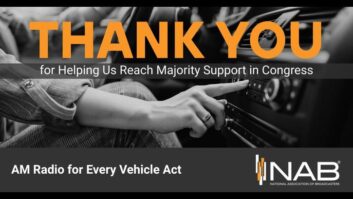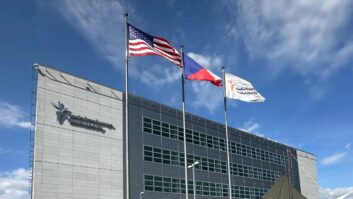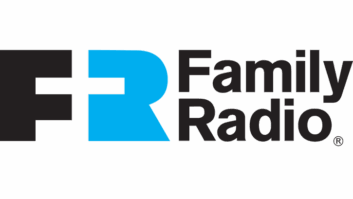Five years ago, starting on Nov. 8, fire ravaged the town of Paradise, located in the foothills of Northern California. It took scores of human lives, killed hundreds of animals, destroyed 14,000 homes and reduced nearly every other building to smoking rubble — churches, shops, restaurants … and radio studios.
The Camp Fire was the deadliest and most destructive wildfire in California’s history, and the most expensive natural disaster in the world in 2018 in terms of insured losses.
As we reflect on the devastation five years later, in this special essay, Kenneth Boone, who has spent more than 50 years in radio, shares his experience surviving the fires after his radio production room (and house) went up in flames.
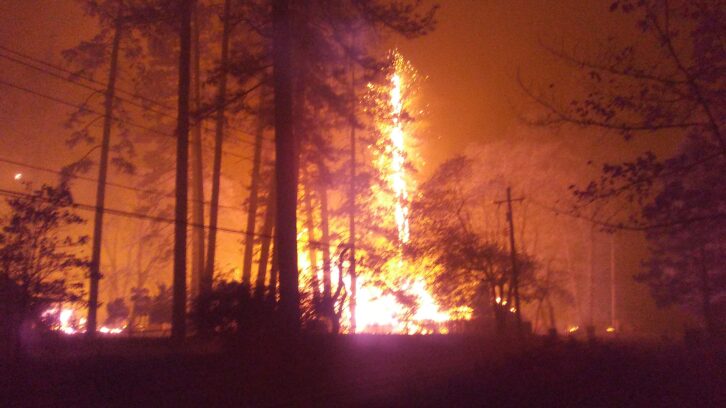
“This is for real, Ken. Clay and I are in the car, leaving town. Get out now, while you can.”
With that, she hung up. It was clear this was going to be a different kind of day.
Life as a radio program provider in a small town is what a colleague called “livin’ the dream.” It was true. Paradise boasted of its beautiful trees, recreational opportunities and slower pace. It was family-friendly, affordable and a comfortable, 200 miles away from the urban snarl of San Francisco.
Not to insult SF. I was born and raised in the Bay area, a great place to start. In 1975, we were a group of 600 bright-eyed and hopeful students in our graduating class of San Francisco State University’s Broadcast Communication Arts Department.
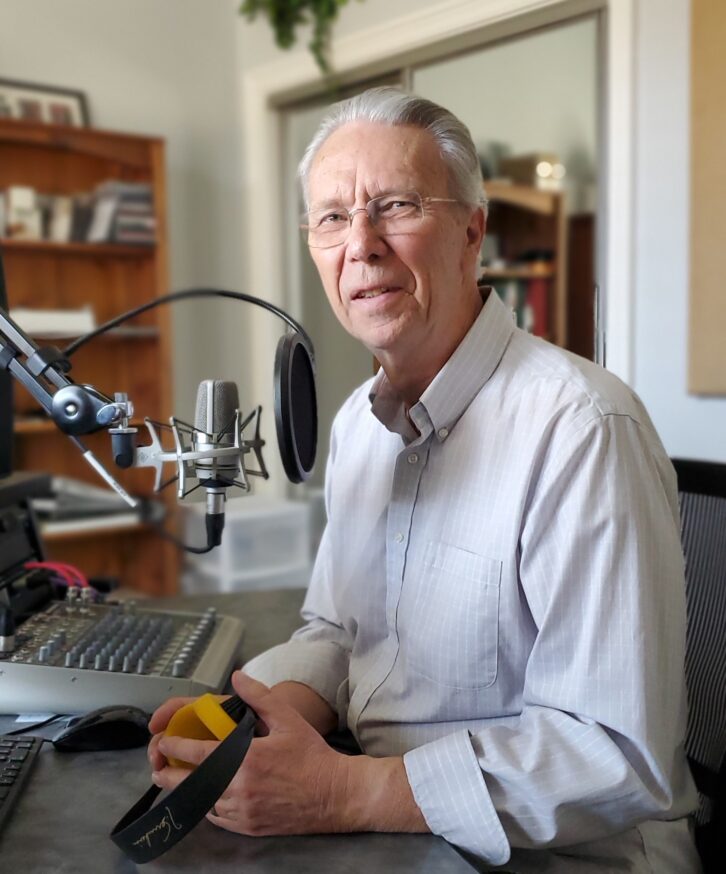
Stats later revealed, unfortunately, that just six of us had jobs or solid leads to jobs when we graduated. That’s one percent.
Somehow I’d landed a position as a board operator at a radio station in San Francisco after volunteering to sweep floors there as a high-schooler years before. Then I enrolled at SF State several years later and the station management realized their young floor-sweeper was serious about serving. When a weekend graveyard shift opened, I was hired. And, with due respect to the University, I learned far more on that job than any place else.
It was also “a God thing,” to put it loosely. That station was and is a Christ-centered radio ministry. What I absorbed there would develop into a career.
Looking back over a half-century of radio work, it’s been delightful. Particularly because I believe it was indeed God who put it all together. And kept it together.
Especially on the day it burned. Home in Paradise. Radio production room. Thousands of other houses and buildings. All up in smoke.
A GLOWING HORIZON
Defying orders doesn’t lead to a long and happy life. At least, that’s what I’ve been taught.
But on the ominous morning of Nov. 8, 2018, with flames devouring the east side of Paradise and masses of frantic motorists following evacuation orders but gridlocking roads out of town, I stayed.
The California Department of Forestry called it the “Camp Fire” because it was ignited along Camp Creek Road near Pulga, a few miles east of Paradise. But it had nothing to do with campsites, camp songs or camp marshmallows. Just the opposite.
Reports of what would become its monstrous devastation led national news for a week. The Camp Fire exploded into the deadliest and most destructive wildfire in the history of California.
I thank God for helping me make the defiant decision to shelter in place. With scores of others in the middle of town, I watched Paradise burn down around us. It was a dismal but spectacular display of explosions, frightened townspeople and flaming pine trees roaring into the darkness above like blow torches. Still, I wondered: My home on the west side wouldn’t burn — or would it? It did.
Most of us made it out alive. But my memories remain seared by the sights, sounds, smells and sorrows of that day. The August Lahaina Fire in Maui stirred those memories. My heart goes out to those people. They too will never forget.
Recovery is possible, though. A backyard memorial wall, built from fire-salvaged bricks in the middle of my new backyard, is proof of that. I call it my “Ebenezer,” a reminder of God’s help.
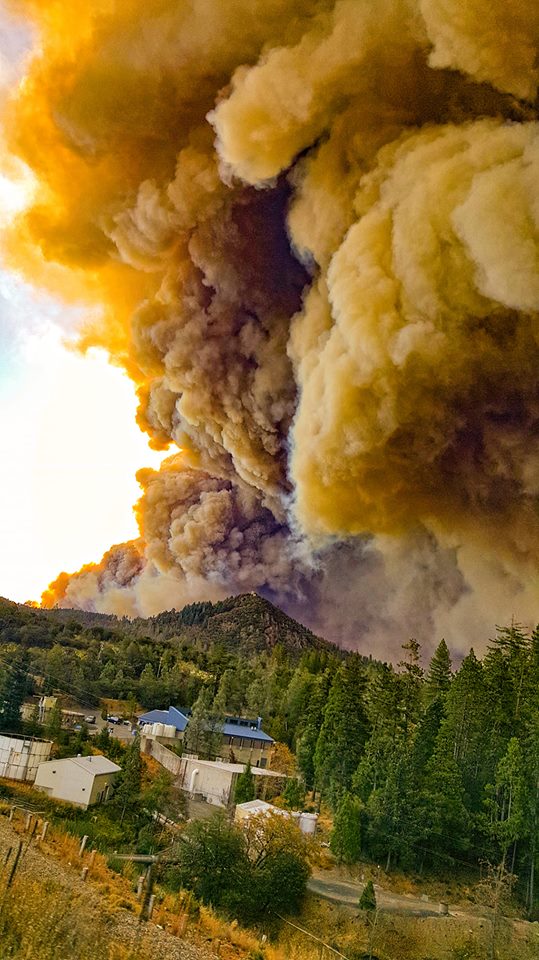
AGAIN?
We’d been through this fire thing before. Our little town received evacuation orders, or “recommendations,” in 2008. Police slowly cruised up and down our little lanes one day, and announced with bullhorns the danger of fire in the adjacent southwest canyon. Yet we saw no smoke.
I chatted with one of the cops, who didn’t seem urgent. “Are we required to leave?” I asked. He paused for a moment. “Well, that’s really up to you. But if you stay, it’d be best to have your stuff packed to go. And you might not have our protection if you did decide to leave.”
That fire, sadly, took out nearly a hundred homes on the edge of Paradise. But it wasn’t a devastation that took lives. We cheered the fire-guys and moved on with life. Unfortunately, it was with a false sense of security. Still, it was also the catalyst God used to help me plan to avoid future fleeing masses of people if possible.
It would be ten years before that happened.
PREPARED, BUT SURPRISED
The Camp Fire of 2018 flipped the town’s carefully crafted evacuation zones and sequence upside down. The CODE RED phone call that morning announced “Zones 3, 7, 9 and 13 are under evacuation orders.” Instead, it was as if the wind-whipped flames leaping from the east shouted “Everybody! Out! Now!”
That’s what police officers were yelling at drivers packed on the Skyway, the only four-lane road out of town. “Move. Move! MOVE!” they bellowed at creeping traffic, stabbing their flashlight beams into the deepening darkness of the road out.
By late morning, the sunrise over Paradise would be hidden by what looked to outsiders like the black smoke of a volcanic eruption.
More than 85 people would die in the flames and confusion that sad day.
I could’ve been one of them. But God answered my prayers as I asked for specific directions. “Is this one serious?” Yes, He replied in my spirit. “Do I need to leave?” Yes. “When?” Call Clay and Mary. (Mary’s words were measured but urgent. “This is for real, Ken. Clay and I are in the car, leaving town. Get out now, while you can.”)
God also gave me the presence of mind to snatch just the essentials to fill a backpack. Water. Bread. Bible. Cell. Insurance papers. External hard drive with broadcast audio, docs and images. But studio equipment? No. Too much.
Backing out of the driveway, “Any final instructions, Lord?” Go back into the house and get your flashlight. “Flashlight?” Yes.
I stopped the engine, strode up to the house, fumbled keys in the deadbolt, walked into the bedroom, and grabbed my flashlight. But I stopped for a moment to survey family treasures. These were too important to burn, right? I had a bad feeling about this.
No time for sentimentality. The stuff was left behind and the front door again dutifully locked. But there was no need to close, much less lock, the door that day.
Minutes later the traffic at Bille Road and Skyway stopped me again, this time with frustrated cops. The whole thing was a hopeless jam getting worse with lines of lateral traffic trying to wedge in.
I flashed back to the plan of years before. “Should I abandon my truck and hike up toward Clark Road?” Yes. Go for it.
Those words seemed to me as too colloquial for God, but His message was clear. He cared and I was covered. It was going to be alright; just needed to follow instructions. So I parked, hoisted my backpack and started out.
“Thanks, Lord.” Don’t forget your flashlight. “Oh yeah…” I went back, not knowing that it would be needed soon to cut through the growing smoke-covered night of that morning.
I walked east up Bille Road, facing cars waiting to join the gridlock on Skyway. Faces of drivers and riders were etched with intensity because they were following evacuation orders but still sat in their idling cars, waiting. Stuck. As I moved east toward the menacing orange glow across the horizon, some of their eyes met mine with the unspoken question “WHAT are you doing?”
And that was the spoken question from a woman I met walking toward me from the east. We stopped for a minute to trade info. I told her about the huge parking lot at the Alliance Church on Clark Road next to the post office. “It’ll be safe there. But it’s another half-mile up. Do you want to come with me?”
She stared at me. “Are you crazy?” she asked. “The fire’s coming from that direction! And you’re walking toward it?” She abruptly dropped her gaze, then continued her trek west, outpacing traffic waiting to get out. I never saw her again.
Around 9 a.m., near Bille and Clark Roads, I met the first flames coming from the east. They were high in the trees and were carried by swirling wind in fist-sized chunks of burning embers that quickly ignited more of our town tinder. But fire trajectories were clear and there was not yet an impassable wall of flame. So I carefully walked between hot spots.
SAFETY AMID FLAMES
Every person in the gathering of two dozen at the parking lot of the Alliance Church arrived from the east with a survival story. “Yeah, my place was engulfed in flames.” “Same for me. My whole neighborhood is gone.” “Just barely made it out …” All were safe, thankfully, albeit dazed. The 200-foot radius from the church to the outskirts of the parking lot gave us a surrounding asphalt ring of protection.
It seemed like I was the only one who’d arrived there from the west side of town.
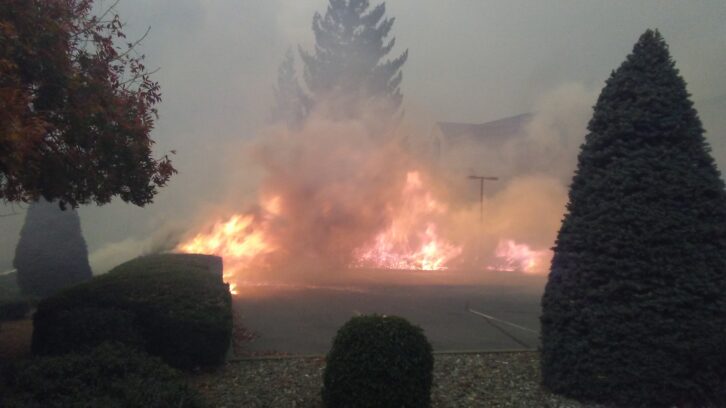
Fire news was sketchy, with reports of Paradise Hospice incinerated, as well as the post office. Neither were. We could see them. The Alliance Church wasn’t either, but we watched the junipers around it burn furiously. The Feather River Hospital on the east side was a serious concern with patients and staff fleeing in any vehicle available while much of the campus was overrun with flames.
Entire mobile home parks nearby, many still housing elderly residents, were reduced to smoking debris.
Sounds of this firestorm swirled around us from all directions: rumbling, hissing, buzzing, snapping, booming. Residential ammunition collections ignited into what sounded like distant popcorn popping. We hoped they would stay distant.
Surrounded by this inferno, I posted pictures and terse descriptions on Facebook until cell service died just after 10. Power company trucks hastily carried workers on side streets to shut off electricity and gas mains. Drivers not jammed in traffic drove at twice the limits. Signals at intersections were dark.
Convoys of fire trucks arrived from surrounding cities to try to fight this impossible fire. When town water pressure dropped to a trickle, however, firefighters were reassigned from fire suppression to population evacuation.
Grappling with the reality of this horrific scene, I wandered around the church parking lot, then took a seat next to a man on a curb. “What are we gonna do?” I asked him. He said nothing.
Then suddenly, “I dunno!” he cried. “This whole stinkin’ town is burnin’ down!”
We sat in silence, staring at the hundred-foot-tall flames tearing through homes, garages, sheds, trailers and vehicles, along with the acres of beautiful pine and oak trees that have always drawn people to Paradise. We watched as the front half of a new pickup truck parked on a driveway in front of somebody’s flaming garage was increasingly consumed. Up and down the street, groups of homes burned simultaneously.
[Read More Guest Commentaries Here]
PRAYER
We could do nothing but watch warily from a distance, anxious that a pickup truck fuel tank explosion was imminent. There were many that day. Even at 400 feet, we could feel the heat from the engulfed homes on Bille, south of us.
“You want to pray?” I asked.
“Umm …” he hesitated. “I … Uh …”
“Want me to pray?” I asked. “Yeah. You pray,” he said. “What’s your name?” “Frank.”
I’d been praying all morning. For years, in fact. Today was a continuing conversation with my Lord, neither rote nor religious.
“Heavenly Father, thank You for sparing our lives. This is a real mess, and we need your help. People could die in this thing. God, help them …” The distant concussion of an exploding gas tank made us both jump.
“God, I pray for Frank, here. Quiet his heart. Mine too. Help us to know what to do, how we can help others, if that’s possible.” I thought of people trapped. “Again, thanks for Your care. In Jesus’ name we’re praying, amen.”
“Thank you,” he said quietly.
Devastating circumstances like these made our bowed heads look, I suppose, like foxhole prayers. But we still connected with God. And there was no objection from Frank.
I prayed with several people that morning and into the afternoon, each time thanking God for His protection. No one rejected my offer. When there’s trouble, of course, everybody prays. When times are good, though, few do. Odd, our human nature.
By 4:30 that afternoon, firefighters pulled one of their engines into the middle of our parking lot survival club, which had grown to about 200 people. I’d helped some of them as they labored to tune their car radios to KPAY, Chico, for a broadcast press conference at 3:00.
Flames had started to die down around us. Daylight filtered through the darkness overhead. The threatening sounds of fire and explosions faded.
Though we’d defied evacuation orders, there was no chiding from these firefighters. If they recognized our wisdom of sheltering in place they said nothing about it. They’d stopped by once before, around 2:00, to advise us that if the smoke got too bad, the K-Mart parking lot was another option a quarter-mile north. None of us moved. And none of the K-Mart people moved to join us. Both groups were on asphalt sanctuaries.
A PATHWAY THROUGH THE DESTRUCTION
Now, though, it was time to get out of town.
“We’ve carved a pathway through the destruction,” came the announcement. “Form a single line in your cars. Follow our lead vehicle. Don’t stop. Don’t turn to the right or left. Power lines on the ground are de-energized. Watch for falling trees and phone poles. You are required to leave at this time.”
I was relieved, understanding later that we were escorted out of town as soon as possible because the place had become not only a scene of destruction but also death. Cadaver dogs would soon detect scents of bodies.
More than a month passed before residents were allowed back to see the devastation.
“Pathway through the destruction” was right. Our line of cars slowly followed the pilot vehicle, winding around fallen trees and blackened remains of autos strewn haphazardly. Some power poles dangled midair from lines they once carried, now like inverted candles, flames licking up from below.
It looked like some grisly scene from a horror movie. We rolled through smoky blocks of burned-out stores, restaurants, businesses and churches — all reduced to charred foundations filled with hot piles of debris and the last of their flames. Still standing, however, was the iconic wooden bear in front of the Black Bear Diner, loyally gripping his “WELCOME TO BEARADISE” sign. The restaurant behind was gone.
That unforgettable drive down Clark Road to the edge of town took about ten minutes. For those fleeing Paradise before us that morning, it took hours. Some terrorized drivers were forced to steer through tunnels of fire, waves of swirling embers bouncing off hoods and windshields. One man’s white truck ended up with paint that looked like a toasted marshmallow a couple of degrees below ignition.
Our convoy guide turned us loose on the edge of town. Down the hill from Paradise life was oddly peaceful, undisturbed. The quiet sky was clear, the air was fresh. Near Butte College I called my daughter Adina. “Hey — I’m alive.” “Wow,” she said. “We were really concerned about you! Thank God you’re OK.” “Really,” I said, then “I’ve been thanking Him all day. You’re not going to believe what’s going on up there right now.”
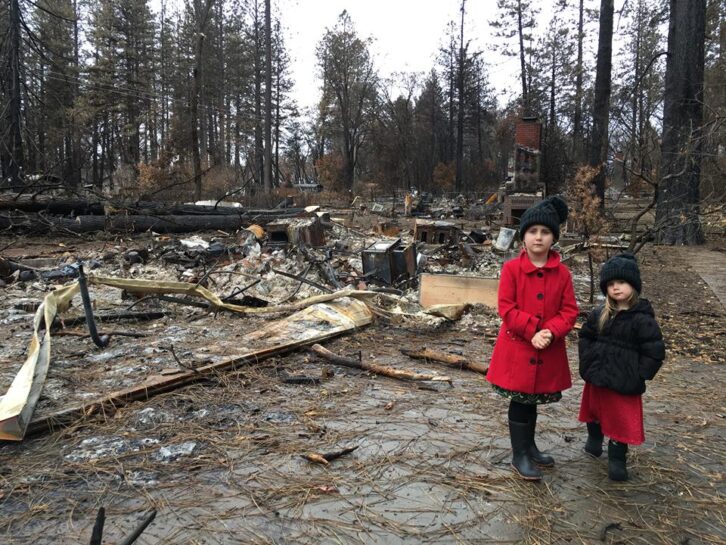
KPAY had announced that afternoon that the Red Cross was setting up evacuation centers in Chico, Oroville and beyond. I kept moving down Clark Road toward Oroville, thinking it would have the fewest people. Adina asked, “Did you lose your house?” “I don’t think so — but I don’t know. It sure doesn’t look good for most of the town, though.” I gave her my flames-and-smoke report for the next few miles.
Within a week I learned that my home and studio had indeed burned to the ground. Our neighborhood was a bed of ashes for still-standing chimneys.
For me there was no real fear that day, though I’m embarrassed to admit an odd fascination. Never before had I witnessed anything like that.
“THIS IS THE WAY, WALK IN IT”
From the Bible: “O Lord, be gracious to us; we long for You,” Isaiah wrote in 33:2. “Be our strength every morning, our salvation in times of distress.” I wondered how the old prophet knew enough to write that some 3000 years before.
And Isaiah 30:21, “Whether you turn to the right or to the left, you will hear a voice behind you, saying, ‘This is the way, walk in it.’” Been there. Done that. I thanked God again.
The man at the Red Cross Evacuation desk at Oroville Nazarene Church said “May I help you?” I took a breath. “You sure can,” I said. With a heat-seared face and ashes on my hair and shoulders, I’d been changed in one day from a giver to a taker.
But as the flames overwhelmed our little town that day, so did the love and support of people around the nation would overwhelm us survivors in days to come.
The gracious OroNaz church people were eager to help. They replaced chairs in their sanctuary with Red Cross cots for us, then fed us dinner. Adrenalin-pumped survivor chatter that night continued well past 1:00 a.m.
In the days to come, heart-warming messages and gifts from friends, old and new, began to pour in. Caring people provided everything from blankets to combs and clothing. These were necessities for those of us whose material lives went up in smoke.
The woman on the phone at The Hartford Insurance, after expressing her concern that I’d experienced “a loss,” assured me that they’d send an adjuster out as soon as possible to walk through my house and survey the damage. “You can send someone,” I replied, “but I don’t think there’s a house to walk through.” There was a pause from her end. “No house? You mean, it’s a total loss?” “That’s right, ma’am.”
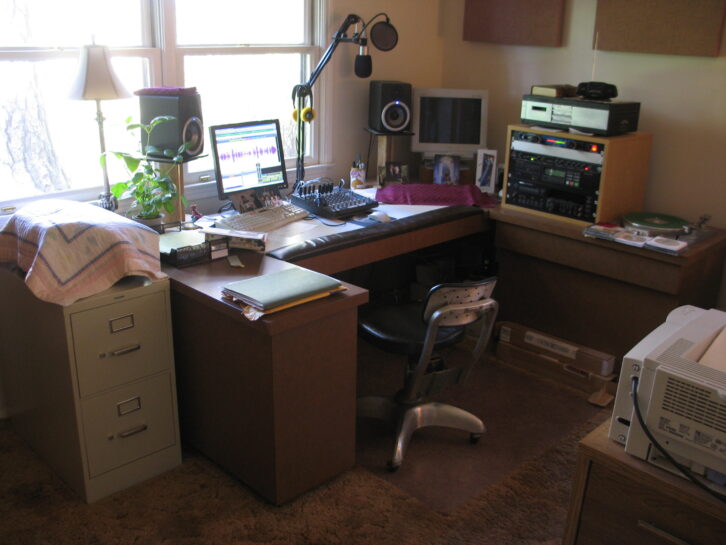
Initial spiritual encouragement from longtime friend Ron Marland grew into a constant stream of love from hundreds of people. Like Mike Kehoe, who hunted me down at OroNaz and invited me to move in with him and Susan at their place in Biggs until I could get back on my feet. I stayed with them for a half year. Susan’s home cooking contributed to that.
[Sign Up for Radio World’s SmartBrief Newsletter]
R U OK?
At Mike’s place I was able to reestablish an email connection.
There were more than 200 impassioned messages waiting, many addressing me with my radio pseudonym.
“Hi Mr. Nick!!! Are you guys all right?? Heard on the Light Radio Network that Paradise has a dangerous fire.” — Chris in VT
“Just heard fire in Paradise … r u ok?” — Kristi in OK
“To all at WeKids: We just heard about the fires that destroyed Paradise. How are all of you? Did anyone get hurt? Our prayers go out for you!” — Jim and Carol in AR
Hi Ken, This is Bonnie from the KHCB Network in Houston. We are praying that you and your family are safe. We have been praying for you since we heard about the fires and evacuation in Paradise. We would like to let our listeners know what has happened, so when you have a chance to update us, we would appreciate it.” — Bonnie
And on they went — an enormous outpouring of concern. I answered them all.
Fortunately WE KIDS had been produced through Christmas that year, a time buffer that turned out to be a ministry-saver.
Ambassador’s Amb-OS Satellite people patiently worked with me, going out of their way to make sure that our future programs were delivered with a fire tag. “What you’ve heard on the news about a fire in Paradise is true. We’re OK. This program was recorded before then. Please pray for us. We have a new address …”
REMOTE RADIO
As many radio broadcasters learned during the COVID-19 pandemic, it’s possible to quickly assemble a remote audio production facility with a mic, computer and software. I was forced to discover that lesson long before COVID.
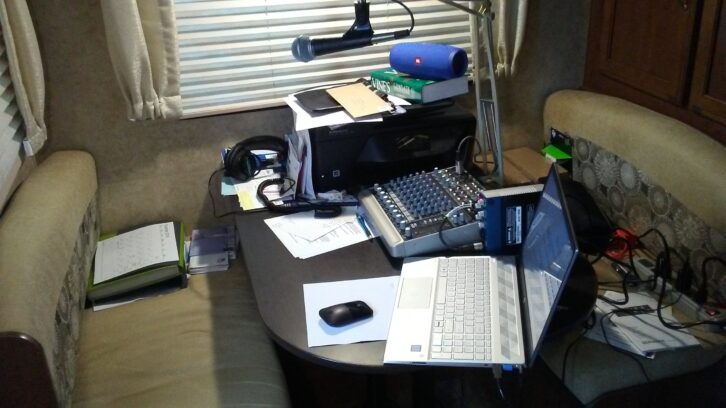
By the end of the year, programs were into production again, this time from the back of a trailer in the little town of Biggs. Audio files were delivered via the internet to Ambassador in LA for satellite distribution. The external hard drive that followed me out of the fire in a backpack turned out to be a life-saver.
It’s an empty feeling to dig through the ashes of what used to be your audio studio.
Anything of wood (cabinets) or paper (books, notes, letters, stamps, pictures, FCC licenses) is gone. Turntable aluminum has melted into a glob. The mixer is but a charred chassis with holes where knobs once worked. The mic has evaporated in the heat, leaving only the metal grid of the windscreen.
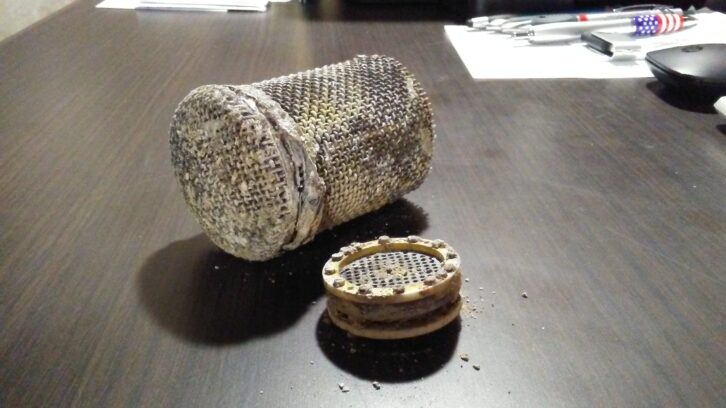
The subwoofer is now an empty ring, coneless. The equipment rack has fallen into the ashes below where it once stood, still anchored to burned empty boxes now cleared of their components. Anything like plastic or insulation has left the scene in roiling smoke. And if there’s a broken coffee mug in the debris field, its glaze has been reformed and is now embedded with bits of charred crud. If it’s tilted up, it’s filled with rain water. Somber, indeed.
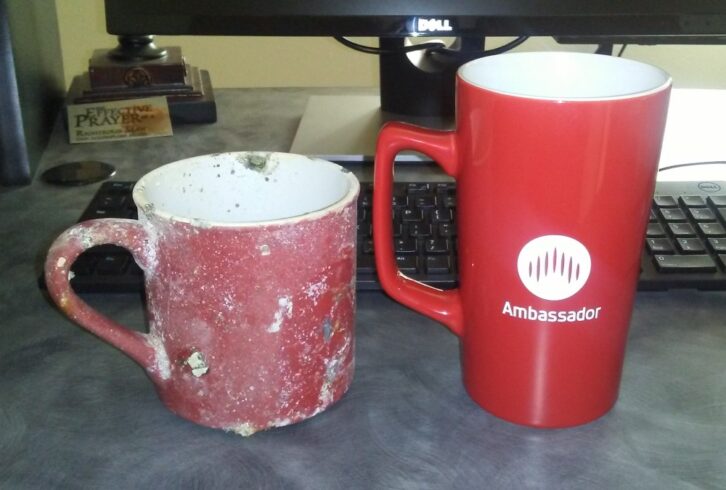
HAZARDOUS WASTE
FEMA repeatedly warned residents that the new Paradise was now a hazardous waste area and should be approached only by wearing hazardous waste suits, head covers, masks and boots. I put their stuff on but still was hit with a pounding headache within an hour of digging through my house ashes with friend Mike from Biggs. The same thing happened two more times. Then I learned to shorten the time I was exposed; that helped.
Samaritan’s Purse sent a group of more than 25 volunteers to sift through the ashes of my place. “Not much here, Mr. Boone. Would you like us to save some of these bricks?” “Umm, well … Sure. I guess so.”
That led to hauling a pile of more than 400 charred bricks from what was left of Paradise. They’ve since been built into an arced memorial wall in my new backyard in Red Bluff. I call it my “Ebenezer,” from I Samuel 7:12 in the Bible: “Then Samuel took a stone and set it between Mizpah and Shen, and named it Ebenezer, saying, ‘Thus far the Lord has helped us.’”
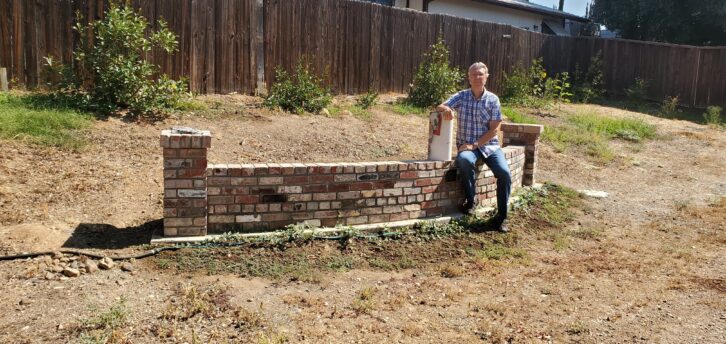
Now, whenever somebody asks about it, I say “There’s a barnburner of a story behind that …” And I’m very thankful to be alive to tell it.
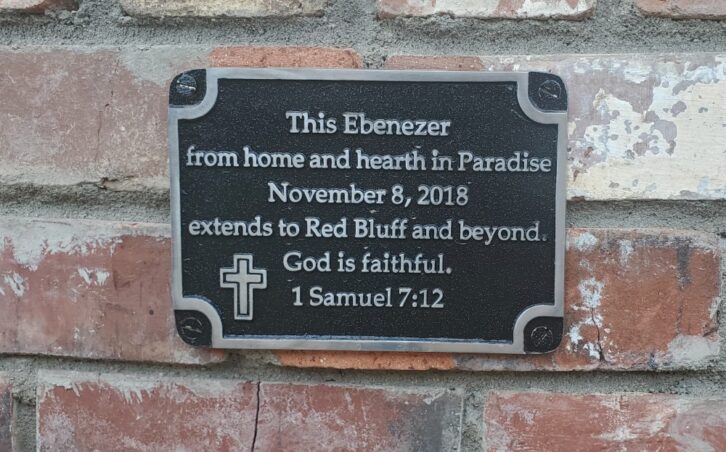
Comment on this or any article. Email [email protected].
Ken Boone is a son, brother, uncle, husband, father and grandfather. In 1969 he started his work in radio at KEAR(FM) in San Francisco as a high-school volunteer. Later he served with the Family Radio Network until 1990, then continued with syndication of his own WE KIDS, a Christ-centered radio program for littles and their families. WE KIDS will be retiring at the end of this year after more than 37 years on the air, leaving Ken more time to volunteer, travel and love life with his wife Carolyn.

